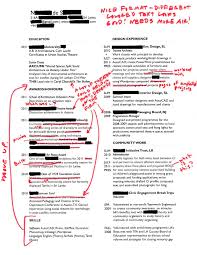Professional HR recruiters see a lot of different issues with resumes, automatically. They’re trained to see mistakes and problems. They can also give job seekers some real insights about job requirements and how best to deliver a good job application.
Basic Mistakes to Avoid
The mistakes people make are often made trying too hard to write a good resume. Some people aren’t trained for resumes writing properly, and resume formatting has changed a lot in recent times, too.
There are a few things you really shouldn’t do, however:
- Cramming your resume with too much information: Cramming resumes is a typical problem for many people. It’s mainly the result of insufficient training in managing resume content. Too much information just makes a mess of your resume. Some people use small fonts, 10 or less, to pack in their information, and it looks terrible.
- Objectives section: Keep this section focused on goals only. It’s best to describe career aspirations and goals in context with a clear career path related to the job for which you’re applying. If your goal is to be a Chief Financial Officer, your application to be a financial adviser is obviously in context with this goal.
- Layout problems: A major problem for some people is managing their layouts. Some templates make this problem a lot more difficult. Your resume layout needs to provide good space for your information, but also needs to be easy to read and navigate.
- Content quality: Most people aren’t professional resume writers. The issue here is that your information quality needs to be good and competitive. Take the time to edit your materials and remove unnecessary expressions and repetitive phrases. Make your resume look good and remember you don’t need to write a whole book when writing it!
- Work history: Your work history needs to be in reverse chronological order, starting with your current job at the top and with previous jobs below it. You need to describe your positions and list your achievements with each job to the best of your ability. Stick to simple descriptions of your information, and make sure your achievements include measurable results, like “Exceeded sales target by 45%,” including dollar values if appropriate.
 Ancient history shouldn’t be on your resume: Any job history which isn’t current and older than 5 years, or not directly relevant to the job, can be excluded from your resume. This sort of material simply uses up space on your resume, anyway. Be fussy about including any information which doesn’t look useful or doesn’t directly relate to the job application.
Ancient history shouldn’t be on your resume: Any job history which isn’t current and older than 5 years, or not directly relevant to the job, can be excluded from your resume. This sort of material simply uses up space on your resume, anyway. Be fussy about including any information which doesn’t look useful or doesn’t directly relate to the job application.- Typos! All documents and all drafts have typos. They’re inevitable. They’re also very annoying and definitely something you really don’t need on your resume. Use spell check and a manual read through to eliminate typos. (If you have text to speech playback, it’s very useful for editing any document.)

